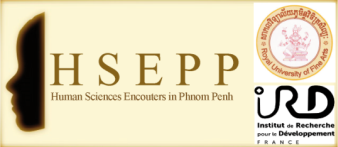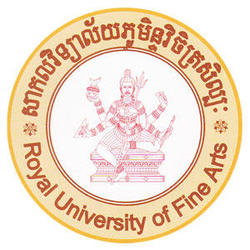Project initiators and partners
Initiators
UMI 233 trans VIH MI/INSERM U 1175
Université Royale des Beaux Arts Phnom Penh
Partners
http://sites.sas.upenn.edu/tlc/
logo tlcAgence Universitaire de la Francophonie - Bureau Asie Pacifique
HSEPP support the Manusastra Project
“Nationalism and mass killing: The khmer rouge extreme nationalism against Vietnam” By Mr. Keo Duong
“Nationalism and mass killing: The khmer rouge extreme nationalism against Vietnam”
By Mr. Keo Duong
Abstract in English: When discussing Pol Pot as the embodiment of a regime or Pol Pot as a person, most people in Cambodia would start by describing the atrocity of a regime under which about 1.7 million people perished violently from 1975 to 1979. Yet Pol Pot and his followers claimed that what they did was first and foremost to protect the nation: their crimes partly disguised behind the banner of their deep nationalistic sentiment.
In this talk, Mr. Keo argues that the nationalistic ideals of Pol Pot at the heart of the Democratic Kampuchea was an extreme form of Cambodian nationalism that resulted from the imagined threat of enemies - particularly from Vietnam - thereby leading to mass killing in the name of the nation. The “Yuon Invader” discourse was historically identified by the Khmer Rouge, as well as by Lon Nol, as one key element of this extreme form of nationalism. Interviews with former Khmer Rouge cadres, especially those who had worked closely with Pol Pot, and studies of the Khmer Rouge policy documents revealed the factor of mass killings that associated with the eradicating Vietnamese civilians and the Khmer who had been accused of having Vietnamese mind.
Keo Duong is currently a researcher KdeiKaruna Organization‘s Oral History Project, a research project that aims to discover flow of lives of ethnic minority people along Tonlé Sap. He is also a lecturer at Royal University of Phnom Penh, History Department. Mr. Keo received BA in History, Royal University of Phnom Penh and graduated from Chulalongkorn University, Thailand with an MA in Southeast Asian Studies. He wrote his thesis on the topic: Nationalism and Its Relations to Mass Killing and Genocide (1975-1979).








